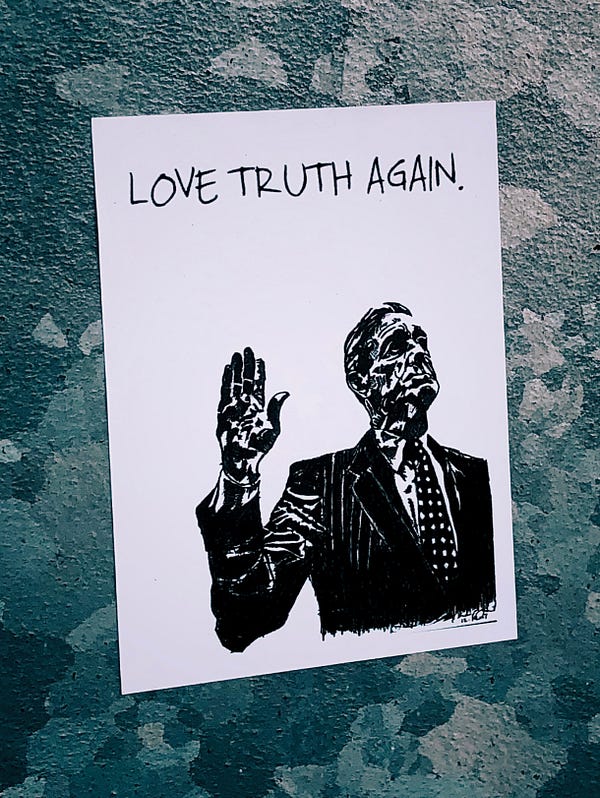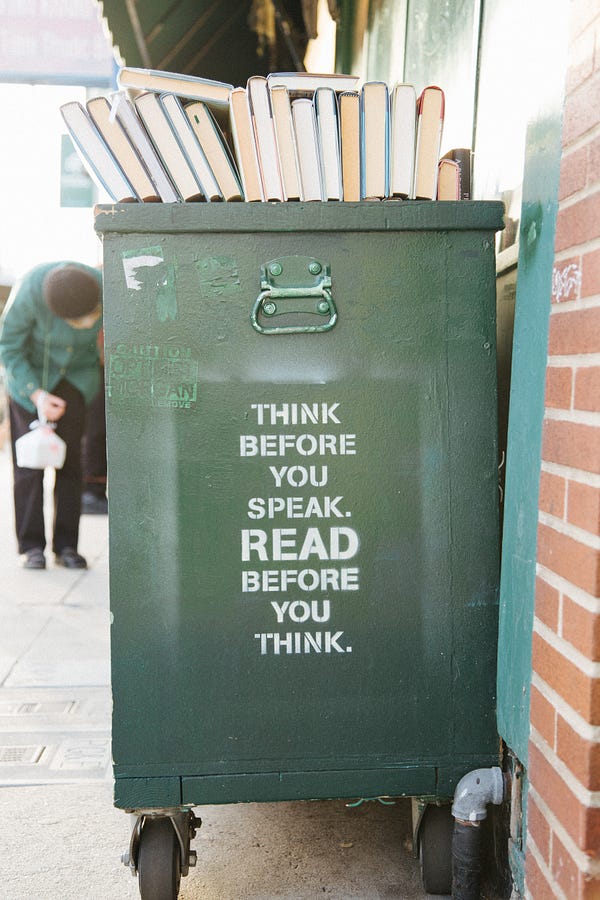Believing a Lie — Do You Have the Right Data?

I frequently reflect on something. Beliefs.
As presidential campaigns are beginning to get underway again for the United States, I think that my piece is timely.
Thinking historically, 5 people close to you might have been in support of Abraham Lincoln. Does that mean that they believed in everything he did? Probably not, there were likely at least a few things that they disagreed on.
I don’t believe that all of us can believe entirely in the same things.
And, even if we do believe in the same things, I would often say that we may not believe that certain thing for the same reasons. But, why would we? We’re all different.
When I chose to go to PBA, I believed that it was the best school for me. I decided on Palm Beach Atlantic University for a different reason than other people did, that’s for sure.
Some people wanted to prepare for a graduate degree in pharmacy.
Others wanted to stay close to the family that they cared about.
Still, others went because they were awarded great scholarships.
For me? I concluded that ultimately, a business degree is just that, a business degree. What matters most is the people that I would encounter. Whether that would be the business professionals in South Florida or the lifelong friends I sought to make while at the university, I decided on PBA for the people.
The difficult thing is that sometimes people don’t have the right data.
Even if you’re not numbers-focused, you still use data.
Where do your beliefs come from?
Some type of data or information.
Whether that is someone telling you something in the past and that evolving to become your belief, that is data.

Or perhaps you look at a report of recent statistics, numerical data, and create your belief as a result of that.
But, sometimes we don’t have the right data.
It would be easy to believe that I’m near 300 pounds… if you never met me.
But, upon meeting me, and seeing my appetite as well as my thin frame? You can no longer believe that I am 300 pounds, it’s obvious that I’m not.
Without knowing me though, I guess it’s a pretty fair belief to have. It’s just not a true one.
We do that with a lot of things though, don’t we?
It’s not uncommon that we think the person with a Bentley must have money.
It’s easy to believe that we might be better than someone at tennis if we have never seen them play tennis before.
It’s not difficult to conclude that we could be more polite than someone else if they don’t hold the door open for their loved one.
But, we don’t really know if any of those things are true, do we?
We don’t have the data.

The difficult thing is expressing what we believe. What if it’s wrong?
What if we believe something so strongly and then later learn that we were wrong?
Then we must adjust our beliefs accordingly.
To me, the problems occur when we hold to those beliefs that we now KNOW are incorrect. What happens if you believed in the past that I’m a 300-pound man and then got to know me and still believed that? It’s pretty easy to tell that I can’t be over 250 pounds, much less 300 pounds. If however, you continued to believe that I was 300 pounds, people might think you’re crazy.
Which, is fine.
Maybe I’m not a man of integrity and the reason you believe that I’m 300 pounds is that I convince you that I am. Perhaps the people who introduced you to me told you from the job that I really can’t be trusted. Whose responsibility is it then for you to determine what to believe?
But, what about something bigger? (No pun intended).
What if I (the 300-pound man without integrity) convinced you that I had a good business venture that could give you 50% returns on your money? Well, you already believed that I was 300 pounds… due to false data, false information; is it really that much of a stretch for you to believe something else from my false data? I don’t think so, sadly.
Perhaps this quote says it best:
“If you want to convince someone they are suffering from a misconception, to is very useful to test their opinions against the data” — Hans Rosling
I believe in telling the truth, in practicing empathy, in showing kindness.
Sometimes, that’s harder to live out than others. But, that doesn’t mean that I won’t.
A deeply held belief I have is that I must be who I am in one situation in every situation, I must be authentic.
On Tuesday I want to write about showing your true self to others and then on Thursday, share some of my observations about the good and maybe not so good ways people respond when others have beliefs that are contrary to their own.